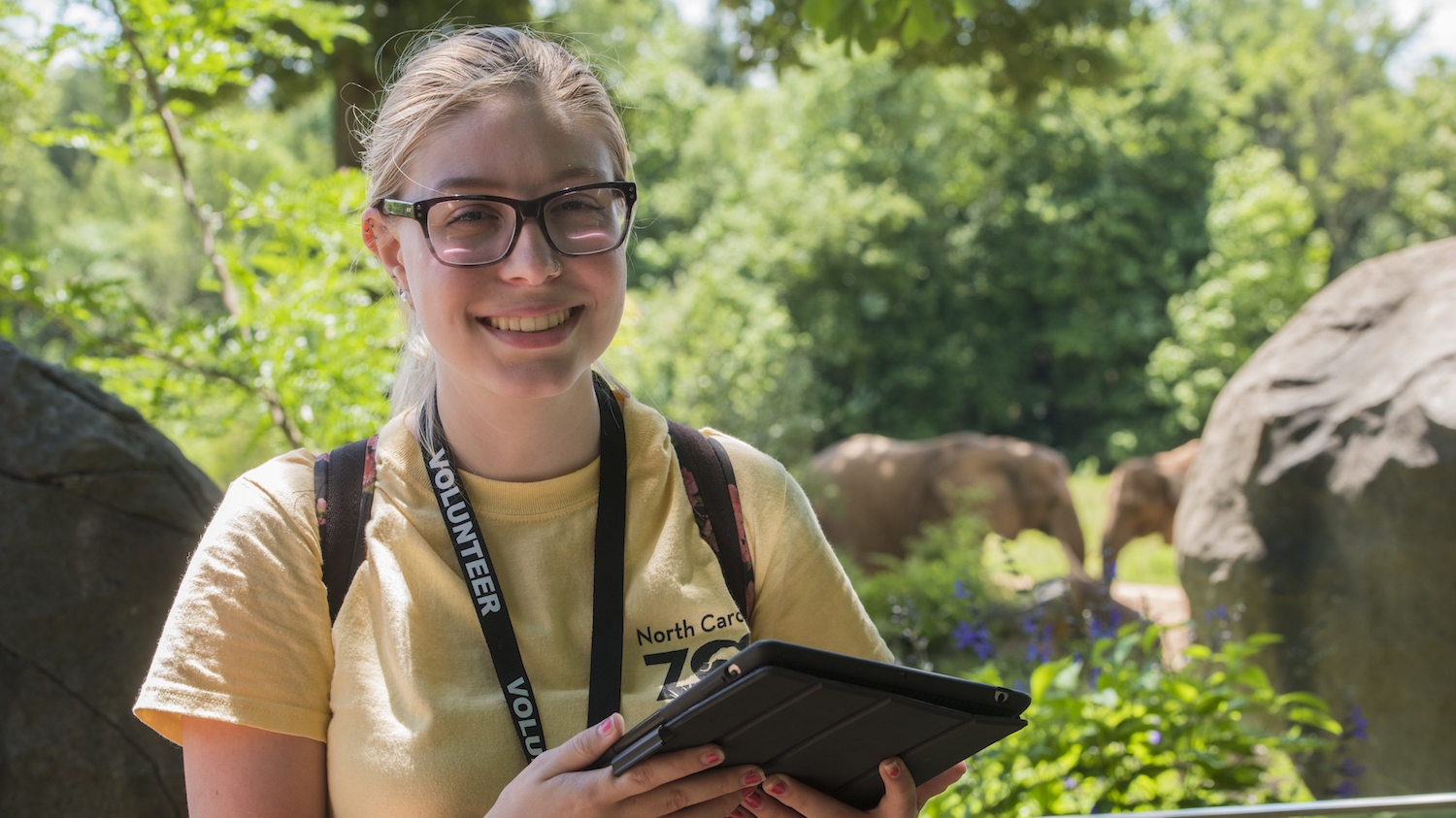A Summer at the Zoo

Katherine Kastl and Natalie Liao are seniors at NC State majoring in zoology. This past summer, they got the chance to apply what they’ve learned through internships with the North Carolina Zoo. They shared their experiences working at the zoo and how the positions enhanced their education.
Q: How did you find out about this internship, and what got you interested in it?
Kastl: I heard about the internship because Jenny Campbell was one of my professors. I was interested because it combined animal behavior and research, which are two things I have a strong interest in.
Liao: I found out about this internship from emails I receive from TheBioGuru. My deep interest in animals and research led me to apply for the internship, and I’m so glad I did! It was such an amazing experience and has taught me more about myself and what I’d like to do in the future.
Q: Describe your a typical day at the zoo.

Kastl: My in-person work at the zoo was almost all data collection, which involves standing at the elephant exhibit and recording different behaviors. I would do that for about six hours a day.
Liao: A typical day at the zoo would start out with horned puffin work in the mornings. I would spend an hour conducting cognition tests with the puffins, and then I would move on to work with the polar bears. I collected behavioral data on the polar bears and would switch between exhibits every hour since the two polar bears were separated.
Q: How were you able to apply what you’ve learned in the classroom during this internship?
Kastl: I’ve taken classes on captive animals as well as animal behavior, so those certainly helped me at the beginning, but a lot of the research has been a learning process. I would say the internship gave me more hands-on experience and a deeper understanding of more specific topics that can be applied in the classroom.
Liao: Information learned from my zoology and research classes was extremely helpful during my internship. I applied my knowledge of stereotypic behaviors when collecting behavioral data on the polar bears, and my previous work with research allowed me to collect and analyze data and read literature more easily. This internship has helped enhance my learning by allowing me to communicate with zookeepers and other zoo staff and hear their experiences, and it also allowed me to obtain more animal experience. In addition, I was able to write a research paper that will hopefully help the polar bears in the future.

Q: What’s the most interesting thing you did during your internship?
Kastl: Overall, getting to know the elephants and their personalities throughout the internship was the most interesting thing. Also, getting to spend that much time just observing elephants was really valuable.
Liao: Watching the polar bears be trained in the zookeeper area was fascinating. I never imagined that I would get the opportunity to be so close to a polar bear! Having the opportunity to be in the exhibit multiple times a week with horned puffins, parakeet auklets and thick-billed murres was also an amazing experience that I’ll never forget.
Q: What goes on behind the scenes at the zoo that visitors might not know about?
Kastl: For the elephants specifically, I would say the sheer amount of work that goes into taking care of them. The keepers have a ton of responsibilities and a big workload, but they aren’t as visible to a lot of zoo visitors since they’re behind the scenes a lot of the time.
Liao: The horned puffins love moss! I used moss during the trials of the cognition project, and they will collect it and hide it in their nests. Also, the zookeepers are some of the most dedicated people you will meet. They truly love the animals they care for and will do everything they can for them.


